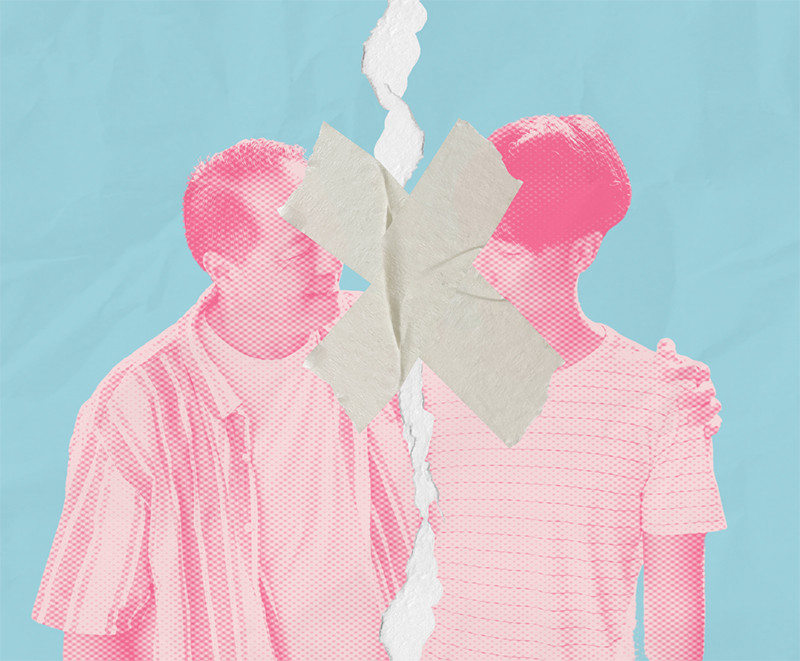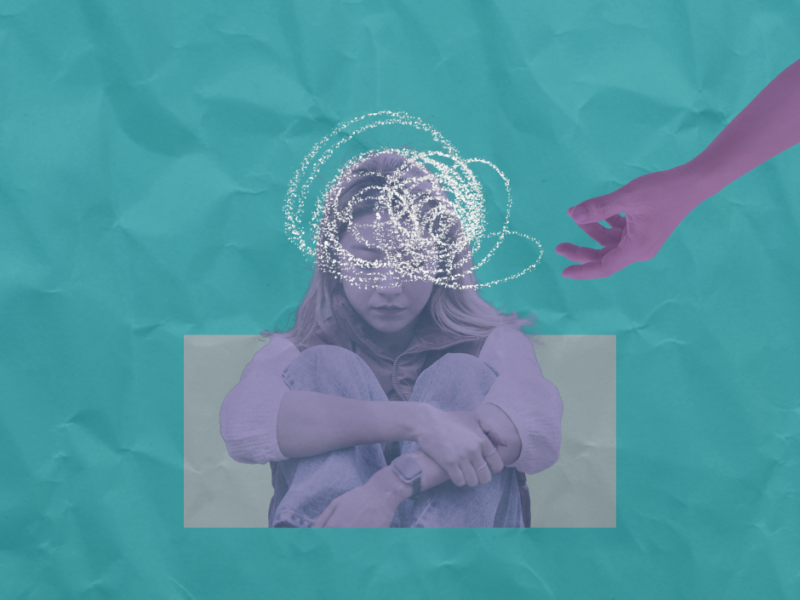Personal struggles and external pressures from a persistently patriarchal society can make some fathers less accepting of their queer children. However, there are ways for queer individuals to connect with their dads and build healthier relationships with them.
While queer people needed their fathers to exist, do they still need them to truly live?
For many, the answer is “no.”
Throughout history and across various forms of contemporary media, members of the LGBTQIA+ community have often experienced strained relationships with the patriarchs of their families—if they even have it at all. This is especially true in the Philippines, where religious and cultural traditions impose rigid expectations of masculinity on those assigned male at birth. Any deviation from these norms can lead to alienation, shame, or even harm from one’s own family.
In response, many queer individuals have learned to depend on themselves, their partners, or their chosen communities. Through these alternative support systems—and sheer determination—they’ve found happiness, fulfillment, and success. Many have proven that it’s entirely possible to live a rich, meaningful life without a healthy relationship with one’s father.
That said, such relationships are still possible.
Amidst stories of estranged queer people are those who do share strong and loving relationships with their fathers. Some were fortunate to be raised by men who offered unconditional support, regardless of sexual orientation, gender identity, gender expression, or sex characteristics (SOGIESC). Others found ways to rebuild and heal their relationships over time.
Did they need to? For some, perhaps not. For others, maybe they did. Regardless, these are some of the things they tried to get what they wanted.
Understand Where Your Father Is Coming From
If your dad is a Filipino who grew up in the Philippines, chances are he was raised in a male-centric environment dominated by an Abrahamic religion—one that expects fathers to raise faith-driven children who adhere to traditional gender norms. He may also feel the pressure to protect his family and maintain a respected standing in the community.
Having a queer child, in this context, may be interpreted by some fathers as a personal failure. While queerness is not a choice, some fathers may mistakenly view it as a deliberate refusal to follow in their footsteps. Though queerness is legal in the Philippines, it continues to be condemned by many religious groups and cultural circles. Even successful queer individuals can still face prejudice simply because of how they express themselves or who they love. When others target their child with hate, some fathers may feel powerless to protect them—and that powerlessness can harden into resentment.
Understanding this context doesn’t excuse their behavior, but it can help you approach the relationship from a place of empathy. It might also give you the right language to respond to their fears and misconceptions.
You can, for example, reframe their idea of “failure” into one of success:
“I know it may have been hard for you to accept that I’m [insert your identity here,]” you can say. “But I’ve found strength in embracing who I am. I’ve built a life I’m proud of—and I’d love for you to be a part of it.”
Bond Through Shared Activities
There’s a belief that men often bond side-by-side—forming connections through shared tasks rather than direct emotional exchanges. This can be helpful when trying to connect with your father.
Simple activities like cooking, fixing things, or doing errands together can create opportunities to spend time without diving into difficult conversations right away. These low-pressure moments can ease tension and build a foundation for more meaningful engagement later on. They can also reduce discomfort, especially when face-to-face dialogue feels too intense.
Practice Open but Gradual Communication
Being open about your life humanizes you to your father and invites him to relate to you in ways he may not have considered. You may not share the same experiences or preferences—but the emotions behind them, like love, frustration, or joy, can be universal.
Perhaps you’re gay and he might not understand why you’re attracted to men, but he probably knows how annoying it is to go grocery shopping with a partner and spend what feels like hours in line. Perhaps you express yourself through drag and he may not see drag as an art form, but he could appreciate the skill and effort behind makeup and costume transformations—like those in superhero movies he enjoys. Talking about these aspects of your interests may help you find common ground. These shared understandings can open the door to deeper conversations.
Be Patient
Rebuilding or creating a relationship with your father may involve helping him unlearn generations of social conditioning.
Despite the increasing visibility of queer people in the Philippines, many still remain a mystery to those raised in more conservative times. For fathers molded by a mainstream culture that discourages emotional vulnerability or deviation from the norm, your queerness may be something they struggle to process.
Be patient. He will make mistakes. Some may hurt. But like you, he is human—and far from perfect.
Accept What Can’t Be Changed
In recent years, we’ve seen inspiring examples of fathers who fully embrace their queer children thus contributing deeply to their success in life. A recent example was seen in the third season of the popular drag competition, Drag Race Philippines.
Competing in it were two drag artists who also happened to be siblings; Maxie and Angel. Both did well in the contest with weekly challenges and eliminations; they made it to the final week with challenge wins and Maxie ultimately took home the crown. Prior to the contest, Maxie was an established drag performer and live singer with stints in both theater and television. Angel, meanwhile, was a budding talent for queer bars in Metro Manila. And after their time on Drag Race, both blossomed into bigger stars who credit their success to the support of their parents, particularly their father Angel Galang Jr.
Maxie identifies as gay and Angel identifies as trans and both work in an industry that embraces their queerness but that wasn’t a problem for Galang even though he came from a religious background. He proudly supported his children. Along with his wife, he even joined an episode of Drag Race to be put in drag by Maxie for a challenge which he helped win. As a result, both his children flourished.
But not everyone is as fortunate as the Galang siblings. For some, despite sincere efforts, a meaningful relationship with their father remains out of reach. Like all relationships, the one between a queer child and their dad requires effort from both sides. And sometimes, they simply don’t fit. A child’s SOGIESC after isn’t the only point of contention between them and their parent. Other factors can also come into play.
That’s the bad news.
The good news is in history and all forms of media. Many queer people have shown—over and over again—that love, joy, and self-worth aren’t dependent on their father’s approval. They can want it but they don’t always need it to live a life they love.



